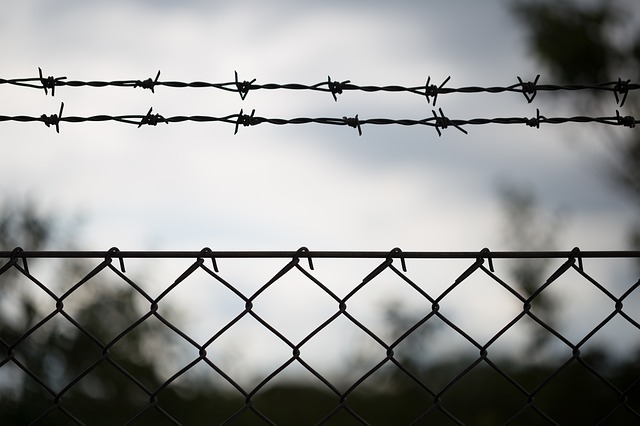
The new administration’s Muslim travel ban has inspired vehement protests across America. Even if the courts uphold it, which seems unlikely, the fear and dismay it’s caused in immigrants throughout the land will have a lasting effect. In a black irony, its most salient effect may be to chase away skilled workers of all types – including immigrant doctors from Muslim countries who work in the underserved regions of Appalachia and the Rust Belt. (Once again, you get what you vote for.)
The protests seem to be having an impact, as support for a Muslim ban has decreased across the board – with one glaring exception. Among white evangelical Christians, it’s increased:
A majority of white evangelical Protestants still favor banning Muslims temporarily from coming to the U.S., according to PRRI. That number has risen to 61 percent, up from 55 percent in 2016.
A graphic shows this trend more vividly:
Declining Support for Temporary Ban on Muslims Except Among White Evangelicals. https://t.co/t7hCgvjHjQ pic.twitter.com/IIoIYbHwgK
— ?? for ?? ?? ?? ?? (@BamzTeHa) March 3, 2017
As you may have noticed, white evangelicals’ enthusiastic embrace of bigotry is all the more remarkable because support for the Muslim ban has declined among every other religious group, including some that used to support it by a majority but now no longer do. As PRRI explains:
White evangelical Protestants are the only religious group in which a majority support a temporary Muslim travel ban. More than six in ten (61%) white evangelical Protestants favor banning Muslims temporarily from coming to the U.S., compared to 55% who supported this policy in 2016. Fewer than half of white Catholics (44%) and white mainline Protestants (39%) favor the ban today, while a majority of each group (52% and 51%, respectively) reported favoring it last year. Fewer than one-third of non-white Protestants (27%) and religiously unaffiliated Americans (21%) favor such a ban.
Again, while there’s still too much bigotry and xenophobia among atheists, the nonreligious are less supportive of legalized xenophobia than any other demographic. That means something, although it in no way excuses the one in five of us who join with the worst kinds of Christians in promoting hatred.
But the real question is why evangelicals are going backward while the rest of the country is pulling away from them. What could be causing this?
It seems clear that this is a real trend, not just a statistical illusion. My Patheos colleague Libby Anne, who grew up in an conservative Christian home, says she can’t remember anything like the current level of anti-Muslim bigotry among evangelicals. And over on the progressive Christian side, Slacktivist notes that evangelicals have come to scorn and detest refugees from the very countries they once regarded as their primary mission field.
It’s not as if there hasn’t always been intolerance among the religious right, but it’s now swollen to flood tide and bursting its banks. The demand to seal our borders and keep the world out has become their defining characteristic. Not coincidentally, that’s a demand that’s deeply interwoven with white supremacy.
I can’t say what’s powering the evangelical turn toward hate and bigotry, but I can offer some speculations. One likely answer is their pessimistic feeling that they’re losing cultural power and relevance (which they are). Their dismay and anger at the realization that the world is slipping away from them curdles into hate and resentment, emotions which naturally lead them to seek targets to lash out at. In the past, they’ve targeted groups like gays and lesbians, but largely failed – in fact, that failure is a large cause of their current sense of loss and displacement. Waging war on atheists also hasn’t achieved much. Muslims, who tend to be non-white, are the convenient new scapegoat for both their racial and their religious resentment.
You might expect that Trump’s election would have allayed this fear and lessened their bigotry, but I doubt it. Instead, it’s just accelerated the trend, pushing them deeper. This probably has a lot to do with the tendency for believers to isolate themselves in a bubble which strengthens their most fundamentalist voices while making everyone outside seem strange, alien and threatening.
Ironically, this is only going to accelerate the decline they’re afraid of. Even with their election victory, the long-term trends are bad for them. It’s a lesson they failed to learn from the civil-rights era, the gay rights era, or any of the other social trends they’ve been on the wrong side of. Increasingly, the longer they cling to their regressive social views, the more the Western world is going to view evangelical Christianity as the last redoubt of hate.
Image credit: Raffaele Esposito, released under CC BY 2.0 license